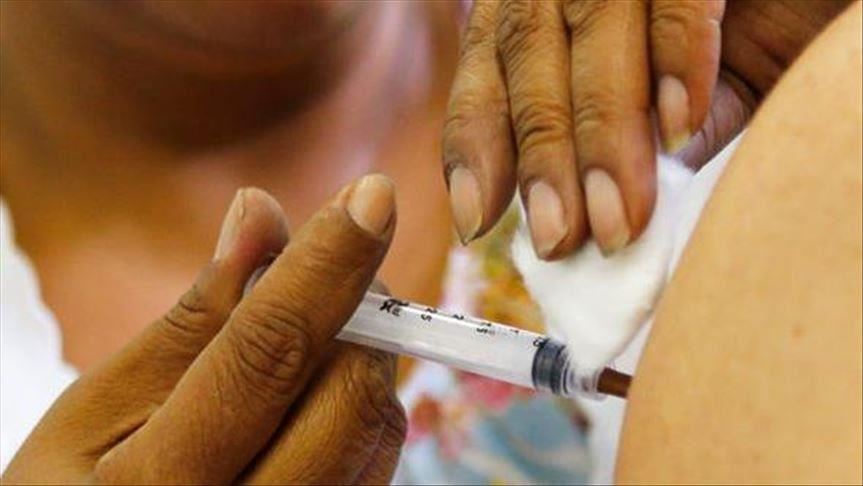
KIGALI, Rwanda
Some 19.8 million infants did not receive measles-containing vaccine last year through routine immunization services, the majority of them in Africa, said a new report Friday.
Nigeria, Ethiopia, and the Democratic Republic of the Congo are among the six countries globally with the highest number of children who missed the vaccination, according to the report by the US Centers for Disease Control and Prevention.
With 3.3 million, Nigeria leads the pack of three African countries with the highest numbers of infants who had not received the vaccine, followed by Ethiopia 1.5 million, and the Democratic Republic of the Congo 1.4 million.
Outside the continent, Pakistan had 1.4 million, India 1.2 million, while Philippines 0.7 million, with the six countries accounting for nearly half or 48% of the world’s total.
"The number of measles cases increased 556% from 132,490 in 2016 to 869,770 in 2019, the most reported cases since 1996," said the report. "Since 2016, the number of reported measles cases increased 1,606% in 2019 in the World Health Organization (WHO’s) African Region."
However, among 194 World Health Organization (WHO) member states, 122 member states achieved 90% first dose coverage in 2019, a 42% increase from 86 countries in 2000.
While annual reported measles occurrence decreased globally during 2000–2016, it increased in all WHO regions during 2017–2019.
No WHO region has achieved and maintained measles elimination, it said.
Between 2000-2019, the annual number of estimated measles deaths decreased 62%, from 539,000 to 207,500, reverting an estimated 25.5 million measles deaths worldwide.
The report noted that in 2020, the COVID-19 pandemic has produced increased programmatic challenges, leading to fewer children receiving vaccinations and poorer surveillance.
It also warned that progress toward measles elimination during and after the pandemic will require strategies to integrate catch-up vaccination policies into essential immunization services, assurance of safe provision of services, engagement with communities to regain trust and confidence in the health system, and rapid outbreak response.
Meanwhile, the report said estimated global measles-containing vaccine (second dose) coverage nearly quadrupled from 18% in 2000 to 71% in 2019, largely because of an 86% increase in the number of countries providing it, rising from 95 (50%) countries in 2000 to 177 (91%) in 2019.
Six countries including Cameroon, Ethiopia, Liberia, Mali, Republic of the Congo, and Togo introduced the second dose of the vaccine in 2019.
In 2012, the World Health Assembly endorsed the Global Vaccine Action Plan, with the objective of eliminating measles in five of the six WHO regions by 2020.
However, to drive progress toward the regional measles elimination targets, the report suggested the need for additional strategies to help countries reach all children with 2 doses of measles-containing vaccine, identify and close immunity gaps, and improve surveillance.
Anadolu Agency website contains only a portion of the news stories offered to subscribers in the AA News Broadcasting System (HAS), and in summarized form. Please contact us for subscription options.







